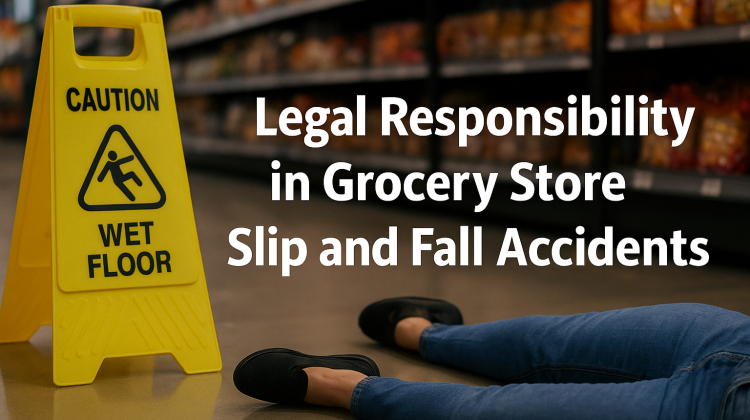Sustaining a serious injury can be a life-altering event, filled with physical pain, emotional distress, and financial uncertainty. Knowing what steps to take immediately following such an injury can make a significant difference in your recovery and your ability to secure compensation if the injury was caused by someone else’s negligence. Here’s a comprehensive guide on what to do after sustaining a serious injury.
Seek Immediate Medical Attention
The first and foremost step is to seek immediate medical attention. Even if you don’t feel immediate pain, some injuries may not show symptoms right away but can become serious if left untreated. A thorough medical evaluation ensures that all injuries are documented, which is crucial for your health and for any potential legal claims. Always follow the treatment plan prescribed by your healthcare provider, as this not only aids in your recovery but also provides a clear medical record.
In cases of serious injuries, such as traumatic brain injuries, spinal cord injuries, or severe fractures, prompt medical attention can be the difference between a full recovery and long-term disability. Emergency room doctors are trained to assess and stabilize patients with severe injuries, providing the necessary care and referring you to specialists as needed. Don’t hesitate to call 911 or go to the nearest emergency room if you suspect a serious injury.
Report the Incident
Depending on where and how the injury occurred, it’s important to report the incident to the relevant authorities. If it happened at work, inform your employer or supervisor immediately and complete any required incident reports. For injuries sustained in public places or on someone else’s property, notify the property owner or manager. In the case of a car accident, call the police and ensure an official report is filed. Having an official report can serve as valuable evidence if you pursue a legal claim.
When reporting the incident, provide as much detail as possible. Describe what happened, where it happened, and who was involved. If there are witnesses, ask them for their contact information and if they are willing to provide a statement. Be honest and accurate in your report, but avoid speculating about who was at fault or the extent of your injuries until you have all the facts.
Document Everything
Documentation is key in building a strong case. Take photographs of the accident scene, your injuries, and any property damage. Keep a detailed journal of your medical treatments, medications, and how the injury has affected your daily life. Collect contact information from any witnesses and keep copies of all medical records, bills, and correspondence related to the injury. This documentation can be crucial in proving the extent of your injuries and the impact on your life.
In addition to visual documentation, written records are equally important. Keep a diary detailing your pain levels, mobility limitations, and emotional state. Note any missed workdays, changes in your ability to perform daily activities, and the impact on your relationships. This personal account can provide compelling evidence of the injury’s impact on your life, which is essential for securing fair compensation.
Consult a Personal Injury Attorney
Navigating the legal complexities following a serious injury can be overwhelming. Consulting a Carlsbad personal injury attorney can help you understand your rights and the potential for compensation. An experienced attorney can guide you through the process of filing a claim, negotiating with insurance companies, and, if necessary, representing you in court. Many personal injury attorneys work on a contingency fee basis, meaning they only get paid if you win your case, which can alleviate financial stress.
When choosing an attorney, look for someone with experience in handling cases similar to yours. A lawyer who specializes in personal injury law will have the expertise and resources to build a strong case on your behalf. During your initial consultation, ask about their track record, how they plan to approach your case, and what you can expect in terms of timeline and outcomes. Good communication and trust are crucial in this relationship, so choose someone you feel comfortable working with.
Notify Your Insurance Company
If the injury involves an auto accident or occurs on property covered by insurance, notify your insurance company as soon as possible. Provide them with the necessary details but be cautious about giving recorded statements or accepting quick settlement offers without consulting your attorney. Insurance companies may try to minimize payouts, so having legal representation can help ensure you receive fair compensation.
When communicating with your insurance company, stick to the facts and avoid making statements that could be interpreted as admitting fault. Provide them with the documentation you have gathered, such as the police report, medical records, and photos of the accident scene. Your attorney can help you draft a statement and handle negotiations with the insurance adjuster, ensuring your rights are protected throughout the process.
Follow Your Doctor’s Advice
Adhering to your doctor’s treatment plan is crucial not only for your health but also for your legal case. Skipping appointments or not following medical advice can be used against you by insurance companies or opposing attorneys to argue that your injuries are not as severe as claimed. Keep all follow-up appointments, attend physical therapy sessions, and take prescribed medications as directed.
If you experience any new symptoms or if your condition worsens, inform your healthcare provider immediately. Keeping an open line of communication with your medical team can help ensure you receive the best possible care and that all aspects of your injury are properly documented. This ongoing medical record is vital evidence of the injury’s impact and the necessity of your treatments.
Consider Your Mental Health
A serious injury can take a toll on your mental health. It’s important to address any psychological effects, such as anxiety, depression, or PTSD. Seeking support from a mental health professional can be an important part of your recovery. Documenting these psychological impacts can also be relevant to your legal case, as emotional distress is often a component of personal injury claims.
Don’t hesitate to reach out to a therapist or counselor who specializes in trauma or injury-related mental health issues. They can provide coping strategies, support, and a safe space to process your emotions. Group therapy or support groups for injury survivors can also offer valuable connections and shared experiences that can aid in your emotional recovery.
Plan for the Long Term
Recovery from a serious injury can be a long-term process. Consider how the injury will impact your ability to work and your future earning potential. You may need to make adjustments to your living situation or career plans. Working with a financial advisor can help you manage any compensation you receive and plan for future expenses related to your injury.
Assessing the long-term impact involves understanding both the medical and financial aspects of your recovery. You may need to modify your home to accommodate new physical limitations or explore new career paths if your injury prevents you from returning to your previous job. Vocational rehabilitation services can help you develop new skills and find suitable employment.
Support Systems
Having a strong support system is essential when recovering from a serious injury. Family, friends, and community resources can provide practical assistance, emotional support, and encouragement. Don’t hesitate to ask for help with daily tasks, such as cooking, cleaning, or transportation to medical appointments.
Community organizations, religious groups, and non-profit agencies often offer support services for injury survivors. These resources can include financial assistance, home modifications, counseling, and peer support groups. Leveraging these resources can ease the burden on you and your loved ones during your recovery.
Legal and Financial Preparation
Beyond immediate medical care and legal consultation, consider the broader legal and financial implications of your injury. You may need to update your will, establish a power of attorney, or create a healthcare proxy. These legal documents ensure your wishes are respected and that someone you trust can make decisions on your behalf if you are unable to do so.
Financially, you may need to explore disability benefits, workers’ compensation, or other forms of financial assistance. A personal injury attorney can help you understand your eligibility and guide you through the application process. Additionally, working with a financial planner can help you manage any settlements or awards to ensure long-term financial stability.
Stay Informed and Involved
Stay informed about your case and involved in your recovery. Regularly communicate with your attorney, attend all medical appointments, and follow up on any referrals or recommended treatments. Being proactive in your recovery and legal case can significantly impact the outcome and your overall well-being.
Educate yourself about your rights, the legal process, and the potential outcomes of your case. Understanding the steps involved can reduce anxiety and help you make informed decisions. Your attorney should be a reliable source of information and guidance, keeping you updated on the progress of your case and any developments.
Sustaining A Serious Injury Is Life-Changing
Sustaining a serious injury is undoubtedly a challenging experience, but taking the right steps can help ensure your health and financial stability. Seek immediate medical attention, report the incident, document everything, and consult a personal injury attorney to protect your rights. Following your doctor’s advice, addressing mental health concerns, and planning for the long term will support your recovery and help you navigate this difficult time. Remember, you don’t have to go through this alone—professional help is available to guide you every step of the way. By staying proactive and informed, you can focus on healing and securing the compensation you deserve.





No Comment